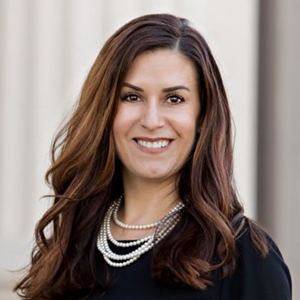What To Do If You Are Involved In An Out-Of-State Car Accident
If you are involved in an accident in another state, odds are you are feeling anxious and confused about what to do next. One of your first moves should be to contact the authorities in the state where the accident happened. You should also contact your automobile insurance carrier and consult with an experienced personal injury attorney who will help guide you through the following steps.
REMINDER: IMMEDIATELY CALL 9-1-1 if you suspect someone is injured.
While most post-accident protocols are similar from state to state, traffic laws vary. The more legitimate documentation and evidence you have from the accident scene, the easier it will be for your insurance carrier to process your claim. These written records are also instrumental when you consult with a personal injury attorney or if other accident victims direct their lawsuits at you.
5 Steps You Should Take If You Are Involved In An Out-Of-State Car Accident
First and foremost, never admit guilt or assume blame. Both can come back to haunt you. Even seemingly benign statements like, “I am so sorry about this,” can be twisted around to seem like an admittance of fault. Remain as calm as possible and keep statements very general, for example, “This is an unfortunate situation.”
Rules of the road and other traffic laws are different depending on which state you are in. Following the below steps could make a big difference if you end up working with a personal injury attorney.
Contact the local police department (or 911)
If you are too shaken up to look for the local police department phone number, do not hesitate to call 9-1-1. An official police record is critical and should be prepared while everyone is still at the accident scene. This information will be directed straight to your insurance carrier and will help document the details of the accident.
If you review your insurance paperwork, you will see that drivers are always obligated to notify the police, as well as their insurance carrier, immediately after an accident. In minor fender-benders that take place close to home, and with cooperative drivers, this step is often skipped to simplify things. However, in an out-of-state car accident, you must follow all obligations outlined in your insurance contract to the letter to avoid your insurance company denying coverage for your claim.
Document the scene
Once you are in a position of safety, begin documenting the scene. Take pictures at various angles of every car involved and the surrounding area. Also take a video, which helps document the chaos that often develops after a car crash.
At the very least, you should document how and when the accident happened and anything you are feeling or noticing. For example, are you experiencing pain, fear, anxiety, etc.? Do you smell alcohol on anyone’s breath? Is anyone disoriented or confused? Did you see someone texting or using their cell phone?
- Note any injuries or complaints from those involved in the accident
- Take photos of the damage to the vehicles
- Take pictures of each car’s license plate number and proof of insurance
- Get contact information from drivers and passengers if they are willing to share it and take a photo of the involved parties’ driver's licenses
If you are feeling overwhelmed with all that is happening, see if one of your passengers or a witness can help you with this step.
Get in touch with your auto insurance carrier
The good news is that most auto insurance policies are valid throughout all 50 states. Your insurance carrier will walk you through the details of how your claim will be processed. Let them know you have contacted the police and can expect an official report once it is complete.
The call to your insurance representative will not be lengthy. However, your insurance company will continue to check back in with you over the following days and weeks to ask questions about the accident and your injuries and to keep you informed of their own investigation. Depending on the situation, they may send someone to the accident site or to appraise the damage to your vehicle. Depending on the type of insurance you have, they may also help you contact a tow truck driver or make arrangements with mechanics or autobody shops in the area.
Contact your rental car agency after an out-of-state car accident
If you were in a rental car when the accident occurred, you need to call the rental car company. If your personal auto insurance covers rental cars, your own insurance company will handle the claim. If not, the rental car agency will facilitate communication with their insurance company. If your own auto insurance does not cover rental cars, and if you did not purchase insurance coverage from the rental car company when you rented the vehicle, the rental car company will walk you through their protocol for paying for the damage caused to the vehicle. (Note: you should never drive a vehicle, including a rental vehicle, without ensuring you have adequate insurance coverage.)
Working with a personal injury law firm
If you decide to pursue a lawsuit against the at-fault driver, it is important to note that the suit will have to be filed in the state where the accident occurred or in the state where the defendant (i.e., the at-fault driver) lives. You can begin this process by consulting with a local and reputable personal injury attorney in the area where you live. In addition to providing legal counsel, the attorney with whom you consult will often have contacts in other states and can facilitate an introduction.
Contact Burneikis Law If You Are Involved In An Accident Out-Of-State
Contact Burneikis Law if you are a California resident and are involved in a car accident in another state. We will do all we can to support your case, including making a referral to a reputable out-of-state lawyer if necessary.


